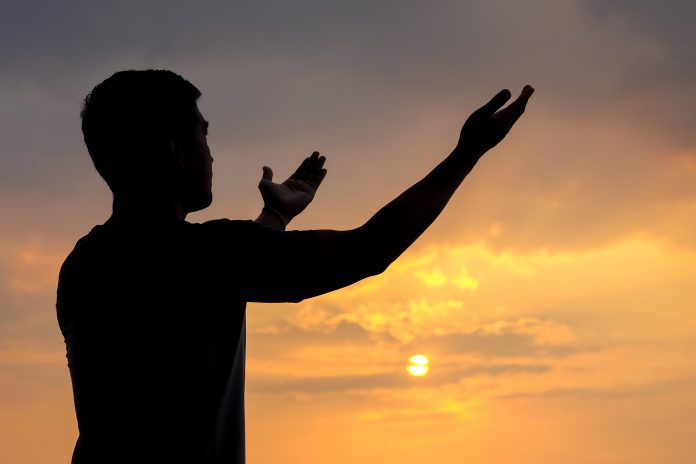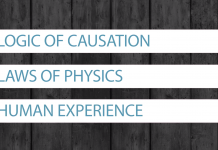
by David Wheeler-Reed
For a more comprehensive Study Guide and Recommended Resources, see the end of this article.
Every time I think of the Sermon on the Mount, I am reminded of two quotes. The first is from a pacifist farmer from Kentucky named Wendell Berry. In his book Citizenship Papers, he says that the best advice we as human beings were ever given is found in the Sermon on the Mount. But he also notes that this template for human progress is the least obeyed.
I also think of the French peasant Peter Maurin, who was the intellectual guru behind the Catholic Worker movement. In his Easy Essays (Rose Hill Books, 2003), he writes, “When the Sermon on the Mount is the standard of values, then Christ is the leader.” Unfortunately, in our own day and age—even in our own Church—it often feels as if the Sermon on the Mount is not our moral compass. Rather, it is more a mere suggestion than divine fiat concerning what our Lord expects of us.
Almost every biblical scholar I know says that the Sermon on the Mount is Jesus’ template for what it means to live life in the Kingdom of God. It is not just about how we as Christians interact with the larger world of which we are a part. It also is about how we as Christians treat one another as sisters and brothers in Christ.
What He Says; What He Doesn’t Say
Matthew sets out the major themes of the Sermon on the Mount with what we call the Beatitudes, found in Matthew 5:3-11. It is important for us to notice what Jesus says here—and what he does not say here. For instance, as a poor peasant from Nazareth, Jesus blesses the “poor in spirit,” or what today we would call “those who are spiritually down and out.” He blesses those who mourn, those who hunger, and those who promote peace.
But he never once blesses those who are violent, those who are rich, those who persecute, or those who refuse to show mercy. I also have been struck by the fact that never once in the Sermon on the Mount does Jesus approve of any governmental authority, nor does he bless the religious hierarchy of Jerusalem. I can only wonder what we are to make of this today.
When I reflect on these things, I am often reminded of something the Jewish scholar Pinchas Lapide said. In his little book titled Sermon on the Mount, Lapide expresses bewilderment at Christians who think they are better off under grace than under Jewish Law. He tells his readers that after reading the Sermon on the Mount he came to the conclusion that he would rather be bound to the 613 commandments of the Torah because grace looks really hard!
Although many Christians may not be prepared to hear this, Lapide suggests that the Sermon on the Mount is a summons to give up everything and follow Jesus, even if it means losing ones life. He also notes that Jesus’ radical teachings in the Sermon on the Mount would set him apart from many of the later rabbis of the Jewish Talmud.
Do We Take Him Seriously?
I often find myself wondering if we take Jesus seriously. Do we take him seriously when he talks about anger (Matthew 5:21-26)? Do we take him seriously when he tells us that being angry at a sister or brother makes us a candidate for judgment? How often do we think before we call a sister or a brother “a fool?”
I am often puzzled by Christians who speak in mean ways about other Christians, especially politicians. Moreover, when I go to restaurants and watch folks clasping their hands together or crossing themselves in public, my mind returns to Matthew 6:6, “But when you pray, go into your room and shut the door and pray to your Father who is in secret; and your Father who sees in secret will reward you.” When I go to our mega malls or mega churches or chain restaurants, I am often haunted by Jesus’ words, “No one can serve two masters…You cannot serve God and mammon (money)” (Matthew 6:24).
Some of the scariest words ever spoken by our Savior…
In the Sermon on the Mount, Jesus teaches his disciples the Lord’s Prayer. But unlike Luke’s version of the Lord’s Prayer, Matthew’s Jesus gives us a little bit of extra commentary.
In Matthew 6:14-15, Jesus says, “If you forgive people their trespasses, your heavenly Father will also forgive you; but if you do not forgive them, neither will your Father forgive your trespasses.” The early Church took this admonition seriously. We know that when the Lord’s Prayer was prayed in the second and third centuries, Christians would mumble through the phrase, “Forgive us our trespasses as we forgive those who trespass against us.” The early Christians knew that to forgive was conditional; to ask for forgiveness from God meant showing mercy to those who had caused Christians hurt and pain.
It is easy to see why Pinchas Lapide thought Jewish Law was easier than Jesus’ teachings on grace.
As we return to the Beatitudes, I should note that these are not promises of future redemption. No, they are promises of present redemption. The Greek translation of the Beatitudes tells us that “those who mourn” will be “comforted right now!” and that “those who hunger and thirst for justice” will be “satisfied right now!” It is no wonder, then, that spiritual masters like Gandhi and civil rights leaders like Martin Luther King, Jr., found in the Sermon on the Mount a moral compass for a new world that was possible even in the present.
Practical Suggestions
I would like to make some practical suggestions as to how we might implement the Sermon on the Mount in our own lives. I will limit myself, of course, to the Beatitudes, but any of my suggestions could easily be used in any part of the Sermon.
We must identify with the “poor in spirit.” This term is a tricky one, which eluded scholars until the discovery of the Dead Sea Scrolls. The poor in spirit is a Hebrew idiom that means “those who have been beaten down by the vicissitudes of life.” To put it another way, it is a term that describes those who have experienced the “injustice” of an unfair world.
Since, as Christians, we are already part of the “new creation” (Galatians 6:15), there is no need for us to wait for Christ to bring justice to this world at a future, unknown date. As ambassadors of Jesus, we can start working with Jesus right now by promoting justice in our own churches, by identifying with people who are crushed by life, and by lending a helping hand to anyone in need.
One suggestion I would offer is, for those of us who have the financial resources, to adopt a family who struggles financially or to pay for healthcare for someone who doesn’t have it. Or we could be even more radical and tell a pregnant teen contemplating abortion that we will do all that we can to help her financially so that she may keep her baby and bring life, not death, into the world.
We can help comfort those “who mourn” right now. I often have been amazed at how the simplest acts of kindness can change people. Instead of just tossing some coins at people who ask for money on the street, we can sit down with these persons, listen to their stories, and perhaps invite them to share a meal with us.
If we were to choose a more radical path, we might take the suggestion of Peter Maurin and make up a room in our homes called a “Christ room,” where anyone who comes knocking throughout the day or night can find a bed, a shower, and a hot breakfast in the morning.
We can ask ourselves if injustice makes us sick. Are we the kind of people “who hunger and thirst for justice,” or are we the kind of people who turn blind eyes away from injustices? I have been disturbed recently by the number of Christians who say, “God is in control. All I need do is pray.” I do not doubt that God is in control, but we must never forget that God also asks us to work together with Jesus to further the Kingdom of God on earth.
We can ask ourselves, “Are we merciful?” Do we call our opponents “blessed enemies” or do we call them “fools?” Do we gossip and ridicule a fellow sister or brother? Do we heap harangue after harangue on the heads of politicians and pundits who need our prayers more than our criticisms?
We can ask ourselves, “Are we peacemakers?” Does each and every action we take promote discord or unity? Do we participate in acts of violence, or do we eschew violence entirely? Do we support a political system that leads to war, or do we do everything we can to make sure that future generations never need to know the horrors we have known in our own generation or in generations past?
We need to ask ourselves a very difficult question: “Are we being insulted and persecuted, or are we just plain comfortable?” In the Sermon on the Mount, there is a call from Jesus to let go of our comfort and to engage the world in ways that ultimately lead to persecution and criticism—from both the Church and the world. The Kingdom of Heaven does not belong to those who are “just plain comfortable,” but to those who seek justice and, as a consequence, experience the world’s wrath.
So we must ask ourselves, “Why are we not being persecuted? Why are we not being criticized? Have we become too comfortable? Are we trying to change things or are we simply part of the system?”
Conclusion
I know a devout Catholic who gets very upset with me when I talk about Jesus’ moral compass in the Sermon on Mount. He often interjects, “This is impossible. No one could do this. Surely Jesus was not being serious!”
This man is very pragmatic, so I often tell him, “We must realize that Jesus is not very pragmatic! In fact, some might say he was irrational—perhaps even criminal!” I then remind him of what Pinchas Lapide said, “The law is easy, but grace is hard!”
David Wheeler-Reed is finishing his doctoral dissertation at St. Michael’s College, University of Toronto. Most of his research has focused on the intersection of the New Testament and the Greco-Roman World. He is currently engaged in research on how the Augustan Marriage Laws affected Paul’s attitudes toward women, marriage, and celibacy in the early Christian house assemblies.
Study Guide and Recommended Resources
David Wheeler-Reed sets the tone and focus for our 2010-2011 University of Dayton catechist formation series. He confirms that almost all biblical scholars understand the significance of the Sermon on the Mount in order to live life in the Kingdom of God.
As Catholics, the Sermon on the Mount is considered the Magna Carta statement for living gospel values. Cultivating the meaning and spirit of the Sermon on the Mount requires that we spend quality time meditating on Matthew 5:3-11. Are we truly willing to live the radical demands to which Jesus invites us in these passages? Or is protecting our own lifestyle and comfort zone more important?
Discussion/Reflection Questions
1. What has been my past experience when hearing and reading the Sermon on the Mount? How has that experience influenced how I live my Christian life?
2. The theme of this series is “A Moral Compass.” How do I understand the Sermon on the Mount to be the moral compass in my life? How often do I refer to this moral compass in my ordinary day-to-day choices? (Be specific.)
3. What position do I take on Pinchas Lapide’s reflection on the Sermon on the Mount? Do I agree or disagree? Why?
4. Is the radical living of the teachings found in the Sermon on the Mount a counter-cultural challenge for me? In what way?
5. How can our speech with or about one another reflect a Beatitude spirit and holiness? What are the challenges I face? Why?
6. What sacrifices do I need to make in my life to embrace the Sermon on the Mount with integrity and authenticity?
7. Do any of Wheeler-Reed’s suggestions for Beatitude living make sense for my own life? How? Why?
8. What is my perspective on “The law is easy, but grace is hard”?
9. What significant new insight or idea comes to me after reading, reflecting, praying, and dialoguing with others concerning Wheeler-Reed’s article?
Exercises
1. Create a Moral Compass Journal for your personal reflections as you journey through this series. The journal might have four sections: 1) a significant insight from reading and reflecting on the month’s article; 2) a personal reflection on daily or weekly meditations on the Beatitudes; 3) identifying a practice for living the Sermon on the Mount in a meaningful manner; 4) writing a personal Sermon on the Mount prayer.
2. Design a Media Sermon on the Mount Checklist to become more aware of how the mass media (TV, newspapers, journals, radio, internet, etc.) seem to work counter-culturally to the teachings of the Sermon on the Mount. What percentage of your time is absorbed listening to or viewing those programs or messages? What impact might they be having on your life or your family or the lives of your students? Do you reflect or confront these behaviors?
3. Have your students compose a contemporary Sermon on the Mount Parable (perhaps a skit). Include challenges and recommendations for Beatitude living in the twenty-first century.
4. Have your students compose contemporary Beatitude psalms to be prayed in class as well as art home.
5. Write a personal contract for incorporating a new Beatitude way of living.
Recommended Resources
Books
Berry, Wendell. Citizenship Papers. Washington, DC: Shoemaker & Hoard, 2003.
Berry, Wendell. Blessed Are the Peacemakers: Christ’s Teachings about Love, Compassion & Forgiveness. Washington, DC: Shoemaker & Hoard, 2005.
Catechism of the Catholic Church. Washington, D.C.: United States Conference of Catholic Bishops, 1994, Part Three: Life in Christ
Lapide, Pinchas. Sermon on the Mount: Utopia or Progamme for Action. Maryknoll, NY: Orbis Books, 1986.
Maurin, Peter. The Green Revolution: Easy Essays on Catholic Radicalism. Fresno, CA: Academy Guild Press, 1949, 1961.
Tolstoy, Leo. The Kingdom of God Is Within You. Stilwell, KS: Digireads.com Publishing, 2005.
DVDs
The Mission. Visually explores nonviolence, faith, and forgiveness. Fr. Daniel Berrigan, SJ, is among the cast.
Son of Man. A retelling of the Jesus story in South Africa during the time of apartheid.
Gran Torino. The final scene of this Clint Eastwood film graphically depicts what it means to be a peacemaker.
The Scarlet and the Black. This classic Gregory Peck film shows what justice and persecution looked like in the Vatican during the Nazi occupation of Italy in World War II.
Copyright 2010, Bayard, Inc. All rights reserved. This article is protected by United States copyright and other intellectual property laws and may not be reproduced, rewritten, distributed, redisseminated, transmitted, displayed, published or broadcast, directly or indirectly, in any medium without the prior written permission of Bayard, Inc.
This article was written by the Catechist Staff and appeared in Catechist magazine, August 2010.
Image Credit: Shutter Stock 578942014




